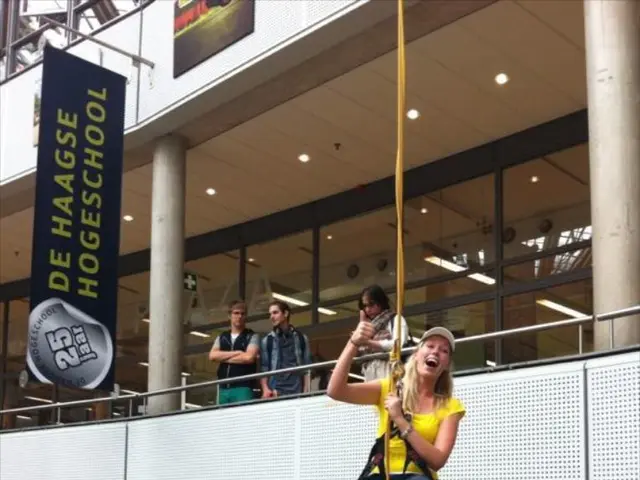Streamlined international railway journeys forthcoming
Simplified Train Travel Across Europe: DB Navigator Set to Unify Ticketing System
Beginning autumn 2025, purchasing tickets for cross-border train journeys across Europe will become more straightforward, as the Deutsche Bahn (DB) will be connected to a unifying technical interface. By the end of 2026, DB will reportedly be able to sell "tickets from all major neighboring countries' railways directly via bahn.de and the DB Navigator app."
According to Michael Peterson, DB's board member for long-distance traffic, "international long-distance traffic is thriving." In 2024, DB experienced its strongest year in this area, with a 22% increase compared to the pre-pandemic year 2019.
Despite the addition of new connections, such as the ICE direct link between Berlin and Paris, train travel in Europe still faces challenges. Matthias Gastel, a Green politician with a background in the rail sector, notes that, "there is no integrated European rail network."
Issues with buying tickets for cross-border journeys are significant.One major inconvenience is that multiple separate tickets may be required, and these tickets do not always grant passengers the same rights as for domestic travel, such as in the case of missed connections.
Technical issues also arise when train lines reach national borders, due to power supply, signalling technology, track width, and language skills of drivers among other factors.
However, the implementation of the Open Sales and Distribution Model (OSDM) interface standard aims to address these complexities. Peterson refers to OSDM as the "language in which European railways and distribution service providers will exchange their data with each other." This will provide DB with access to all major railways' ticket portfolios, and vice versa.
Initially, this will apply to Austria's ÖBB and Switzerland's SBB from autumn 2025, with additional partners added slowly. "We expect that by the end of next year, Europe will be almost completely covered in this way," said Peterson. By 2026, it should be possible to book tickets from Oslo to Athens or Warsaw to Barcelona in one step via traditional distribution channels.
Railways and sales service providers are free to implement the OSDM standard. However, there may be challenges for new market participants, particularly due to costs and complex implementation, as noted by Flix. DB customers will reportedly benefit from simpler booking processes, improved price information, and access to international prices combined by railways.
While the OSDM standard is being implemented, EU legislative proposals aim to ensure that European citizens can purchase trans-European journeys with multiple service providers and exercise their passenger rights for the entire journey. The EU Commission will soon present a legislative proposal on uniform digital booking and ticket services.
Despite potential challenges and conflicts with EU proposals, Peterson expresses optimism, stating, "I have no concerns about what the EU Commission wants to regulate because we have the same goals."
Sources: ntv.de, mau/dpa
- European Union
- Transport Policy
- Consumer Protection
- The European Union looks to enforce regulations for a uniform digital booking and ticket service, aiming to ensure citizens can purchase trans-European journeys with multiple service providers and exercise their passenger rights.
- As part of the employment policy, railways and sales service providers are expected to implement the Open Sales and Distribution Model (OSDM) standard, providing simpler booking processes, improved price information, and access to international prices combined by railways.
- In addition to the community policy focused on simplified train travel across Europe, vocational training programs are necessary to address the technology-related challenges that arise when train lines reach national borders, such as power supply, signalling technology, track width, and language skills of drivers.






